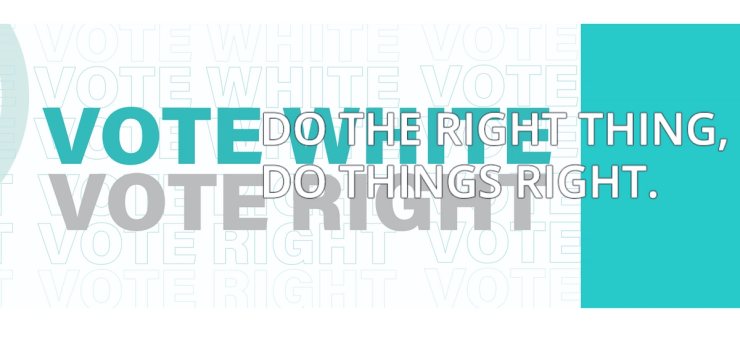The News
A Taiwanese political party removed the phrase “Vote White, Vote Right” from its website over its racist connotations in the U.S. and its similarity to a slogan used by an American white supremacist party in the 1960s.
The Taiwan People’s Party uses the color white to identify itself, and a spokesperson said at a press conference that the slogan wasn’t meant to advocate for white supremacy.
“It was supposed to mean that vote for the ‘power of white’ is the right choice,” the spokesperson said, according to Focus Taiwan.
We’ve curated articles and insights on why a decades-old American slogan sparked a controversy 7,000 miles away.
Insights
- The TPP spokesperson said the Taiwanese people aren’t familiar with the idea of white supremacy. But she said the slogan drew “different opinions” from people online and “friends from the West.” Journalists pointed out that the phrase “Vote Right, Vote White” was used by the National States Rights Party, which was founded in the U.S. in 1958 and pushed white supremacist and anti-Semitic messages.
- Some experts said the controversy showed the outsized influence of American culture online. “American cultural power is so overwhelming that you have to pull a slogan when it sounds like it could mean something in the US, even when it’s not remotely possible that it could have meant the same thing in context, and also couldn’t be offensive to anyone,” Mike Bird, the Asia business and finance editor for The Economist, tweeted.
- The American lens for discussing cultural issues, especially social justice activism, often dominates in international contexts online, Helen Lewis wrote in The Atlantic in 2020. “Sharing the internet with America is like sharing your living room with a rhinoceros. It’s huge, it’s right there, and whatever it’s doing now, you sure as hell know about it,” Lewis wrote.
- Social justice activists said minorities, including Black residents and migrant workers from Southeast Asia, do face racism and discrimination in Taiwan. Much of that discourse was revived in the country after the murder of George Floyd in the U.S.
AD


